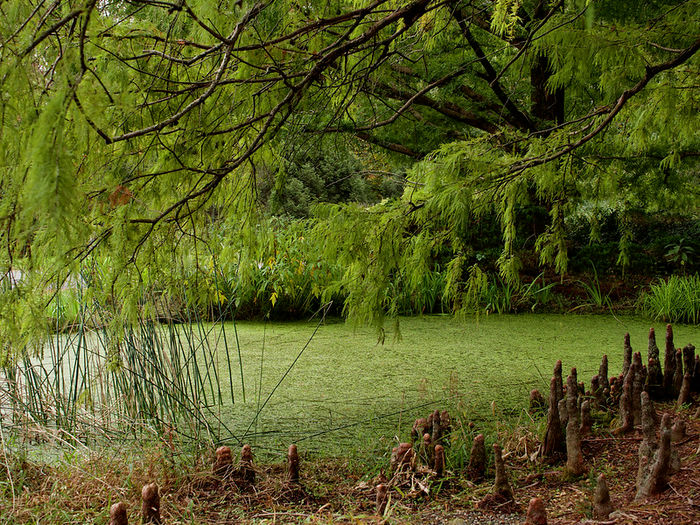Research Round-Up: Week 8
Ananya Vijay guides us through some of the most recent and exciting discoveries from Cambridge

Mathematics, music and a lack of mutuality: Pythagoras off-key with theory
While famously mathematics is omnipresent in nature, most commonly with the golden ratio, the case of Pythagoras illustrates that in some instances, there is no mutuality between mathematics and the natural world. Pythagoras speculated that consonance, a melodious combination of notes, is caused by special integer ratios between numbers such as 3 and 4. However, rather paradoxically, researchers from the University of Cambridge, Princeton and the Max Planck Institute for Empirical Aesthetics have discovered through a study of 235,000 behavioural judgments that we prefer “deviation” from these perfect-sounding chords. This is because it imbues the sounds with more character.
“Using new instruments with different harmonies and scale systems could result in boundless new creative opportunities in the music industry.”
The researchers also evaluated instruments which were less known to Western audiences. For instance, they tested the bonang, an instrument used in Indonesian culture and discovered that consonances were present in their specific musical scale, one that is unable to be replicated on Western musical instruments. The 4000 members involved in the experiment, who were unfamiliar with Indonesian music, were also able to appreciate these sounds, which wouldn’t have been the case if there was a unified rule for harmony like Pythagoras suggested. Dr Harrison argues that using new instruments with different harmonies and scale systems could result in boundless new creative opportunities in the music industry.
Telescopes, theatrics and time: curtain call for galaxy
The oldest “dead” galaxy in the universe has been observed using the James Webb telescope, with its star formation ceasing over 13 billion years ago. A rather hedonistic attribute for a galaxy, it is said to have “lived fast and died young”. This was not theorised for the universe at such an early stage of expansion. There is still a degree of ambiguity clouding the cause of this state - whether there is a subsequent metamorphosis leading to stars forming again is still unknown.
“Galaxies may have a penchant for theatrics.”
Astronomers theorise that feedback from star formation or supermassive black holes can expel gas out of a galaxy, causing star formation to abruptly stop. The other proposed theory is that gas isn’t supplied to the galaxy at a fast enough rate, leading to galaxy “starvation”.
Nevertheless, this observation only describes the state of the galaxy at a time 700 million years after the start of the universe. Galaxies may have a penchant for theatrics, as Dr Francesco D’Eugenio speculates that the galaxy could “burst back to life”. On a larger scale, Professor Roberto Maiolino argues that the existence of the “dead” galaxy in such an early stage of evolution may lead to revised models of the current universe. More observations are required, however, to reach a definitive conclusion – the James Webb telescope with its high degree of sensitivity seems poised to progress this line of investigation further.
Forests, fossils and flows: shedding light on coastal symbiosis
The oldest fossilised forest in the world has been discovered along the coastal region of Devon and Somerset, dating back to 390 million years ago. The trees found (known as Calamophyton) were rudimentary “prototypes” of trees existing today. Their trunks were thin and hollow and considerably shorter, shedding branches which provided sustenance for the invertebrates on the forest floor below.
The discovery of these fossilised trees illustrates to us how trees helped to stabilise riverbanks and coastlines millions of years ago through their root systems stabilising sediment. Dating back to the Devonian period around 419 million years ago, a time when life first began to develop on land, the forest could unlock more information on the catalysts for the subsequent evolution of land animals as well as the behaviour of river flows.
 News / Candidates clash over Chancellorship25 April 2025
News / Candidates clash over Chancellorship25 April 2025 Interviews / Dr Ally Louks on going viral for all the wrong reasons25 April 2025
Interviews / Dr Ally Louks on going viral for all the wrong reasons25 April 2025 Music / The pipes are calling: the life of a Cambridge Organ Scholar25 April 2025
Music / The pipes are calling: the life of a Cambridge Organ Scholar25 April 2025 News / Cambridge professor paid over $1 million for FBI intel since 199125 April 2025
News / Cambridge professor paid over $1 million for FBI intel since 199125 April 2025 Arts / Plays and playing truant: Stephen Fry’s Cambridge25 April 2025
Arts / Plays and playing truant: Stephen Fry’s Cambridge25 April 2025






